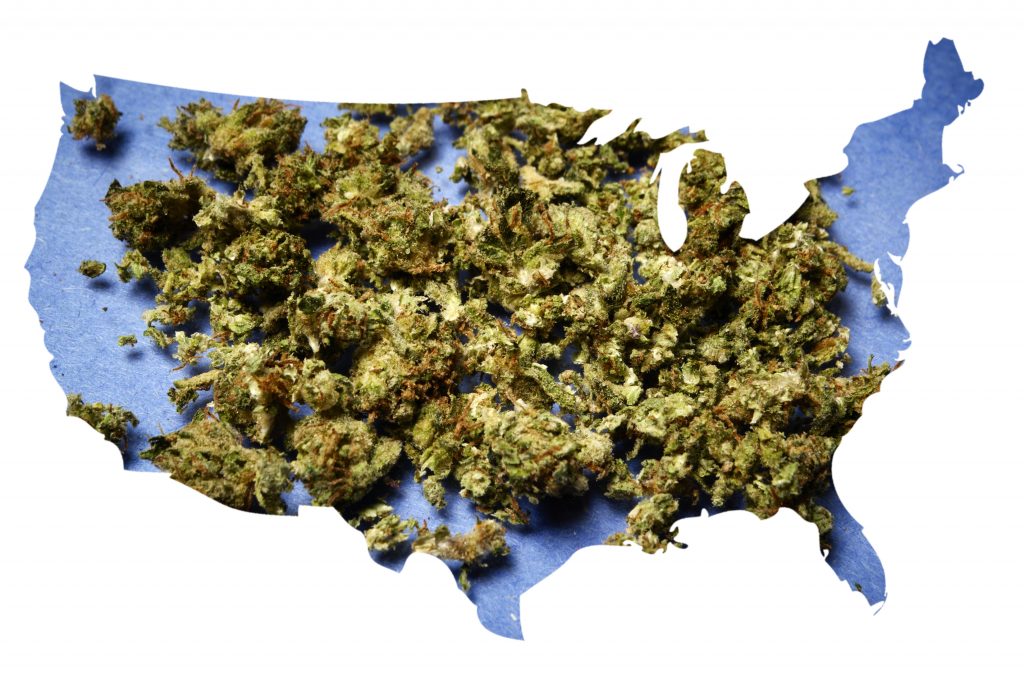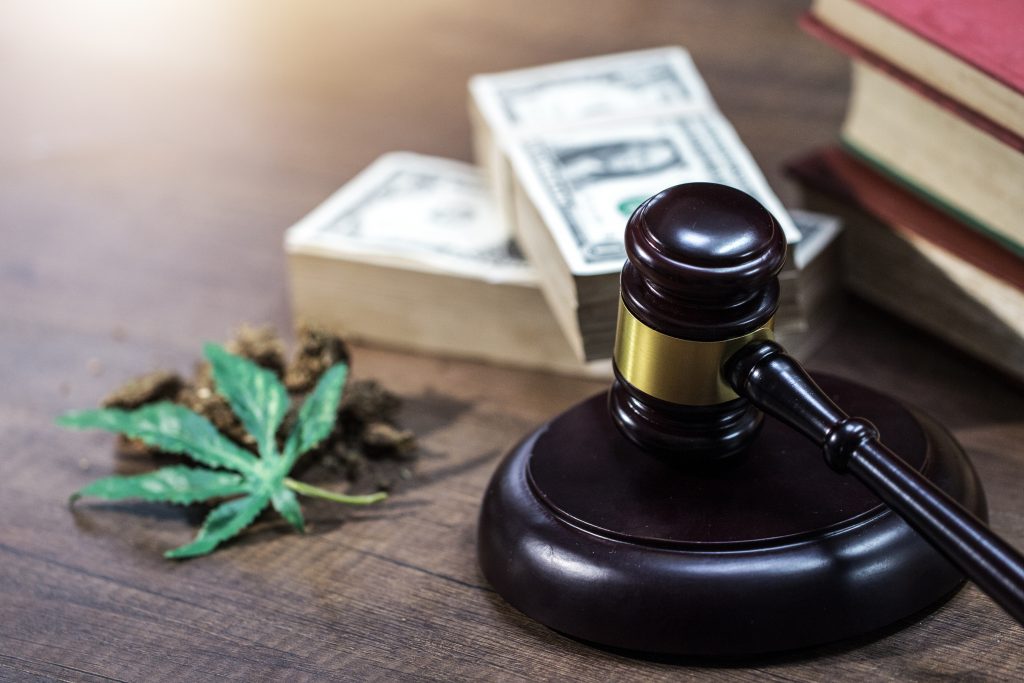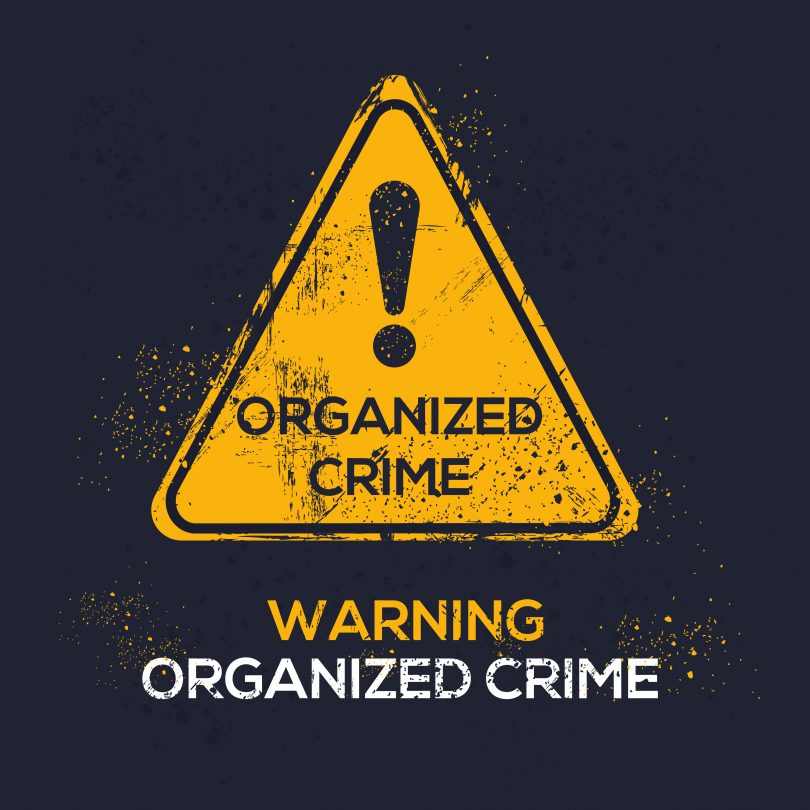For years, businesses and private individuals have attempted to sue cannabis companies based on RICO laws meant to curb organized crime. In what can only be described as a stunning turnaround, legal cannabis companies are now going on the offensive, and using RICO laws against illegal cannabis operations, and corrupt law enforcement.
It’s pretty cool that cannabis companies are now using RICO laws for themselves. In fact, it’s just as cool as the introduction of products like delta-8 THC, which are currently available to the public. Delta-8 is an alternate version of THC to delta-9, and comes with the benefits of not causing the same kind of anxiety, providing slightly less psychoactive effect, and not making users cloudy in the head. Interested cannabis aficionados can check out our deals for delta-8 THC, and a range of other compounds, such as delta-10, HHC, THC-O, THCP and THCV.
What does RICO mean?
In 1970, the US passed the Racketeer Influenced and Corrupt Organizations Act, also known as RICO. The law is meant to battle organized crime in the US. The law allows the federal government to prosecute and bring civil penalties to criminal racketeers involved in ongoing criminal enterprises, and is meant to keep criminal operators from getting involved with legitimate businesses.
It covers activities like illegal gambling, bribery, kidnapping, murder, money laundering, counterfeiting, embezzling money, drug trafficking, slavery, and other crimes that fit in this general category. The way it works, is in order for a conviction to be made, the government must prove that the defendant was a part of at least two racketeering activities, as well as proving the defendant has a direct investment in a criminal enterprise which affects commerce, whether interstate or foreign.
This also includes having had an interest in, or participating in, such activities. Some of the organizations that this law has been used against, include members of the mafia, extremist groups like Operation Rescue which is an anti-abortion group, and the Hell’s Angels, a motorcycle gang. RICO suits can be criminal, and come with prison sentences. Or they can be civil suits in which plaintiffs seek payments from defendants. Civil cases come with their own requirements for substantiation, and are more relevant to legal cannabis companies.

Cannabis and RICO
The cannabis quandary of state vs federal is exemplified by RICO laws. Cannabis is federally illegal, yet perfectly legal in specific locations, complete with laws to govern use and regulated industries. Yet this discrepancy between federal and state laws, leaves cannabis in a strange gray area. In places where its legalized, it shouldn’t be considered a crime to lawfully take part in the industry under states rights. However, because its still federally illegal, this opens cannabis companies up to federal litigation under RICO laws, even when the companies check all boxes correctly for a legal operation in their own states.
For civil cases, so far, “federal courts have concluded that operating a marijuana business qualifies as ‘dealing in a controlled substance… as defined in section 102 of the Controlled Substances Act,’ even in states that have legalized recreational marijuana.” This is important because civil suits come with the requirement that plaintiffs must be able to allege that the defendant has been habitually committing predicate offenses in association with a commercial and legitimate enterprise. This is one of the stricter pleading requirements for civil cases, and a damning one for cannabis companies.
On the positive side, other pleading requirements in civil cases do exist, which make it more difficult to find cannabis companies guilty of RICO crimes. Like the requirement that a plaintiff must show some amount of damage/injury to the business or property where the business is located, and this must be related to financial loss. It also requires that the plaintiff be able to show that it was the defendant’s RICO violation which caused the damage/injury in the correct time period.
This requirement for showing a financial loss or injury, has been difficult for plaintiffs to prove, but some have been able to get themselves settlements, like this case from Massachusetts. In this case, the claim against the cannabis enterprise couldn’t be proven, but the company still thought it best to settle with plaintiffs. Civil cases don’t generally come with jail time, though a case can come with both criminal and civil implications. In civil cases, the plaintiff is generally looking for a monetary settlement only. Luckily, no one from a legal cannabis operation has had to spend time in jail for a RICO crime yet.
This has been an ongoing issue, for which there are open cases all over the country, with different strategies to show damage. As federal courts continue to uphold that legitimate companies growing and selling cannabis in legalized locations, are committing predicate offenses, this will likely continue. And though showing substantial harm has been difficult for plaintiffs against cannabis companies, the courts have given indications as to what could qualify as applicable damage, and plaintiffs are getting more creative in trying to show this damage.
Just in case it needs to be reminded, we aren’t talking about the cannabis black market, or the guy selling weed out of his car on the corner. We’re not talking about cartels trafficking it over the border, or large-scale growing ops happening illegally. We’re talking about legally licensed marijuana growing, production, and sales operations, which aren’t breaking laws in their locations.

Private plaintiffs using RICO
RICO cases can be brought by an enterprise, or by private plaintiffs. Another issue for cannabis companies, has been private plaintiffs using the citizen-suit provision of the RICO laws, to sue cannabis farmers. These cases have been popping up more and more as plaintiffs attempt to sue marijuana farmers operating close by, but they face some issues as well. In order for a private plaintiff to win a case, they must show three things:
- That the defendant has been habitually committing criminal, ‘predicate’ acts.
- That the defendant is associated with a criminal enterprise.
- That injury has been caused to business or property of the plaintiff.
Another issue that can make it difficult for private plaintiffs, is that though RICO was intended as an anti-mafia law, it does go beyond that, but not with clear-cut definitions. This leaves individual courts to decide if patterns of activity actually qualify as applicable criminal reasons for RICO suits. This creates different opinions. However, if the plaintiff can show all the necessary requirements, the court can rule in their favor.
Are the tables turning? Cannabis companies now on the offensive with RICO
There’s definitely a certain satisfaction in seeing unfair laws get turned around, and such is the case with RICO cases involving legal cannabis operations. In a great showing of a turning of tables, the same cannabis companies that have been targeted using RICO laws, are now on the offensive with their own RICO cases. Who are their cases against? Unlicensed cannabis retailers, as well as corrupt law enforcement officials.
This new phenomenon of cannabis companies going on the offensive with RICO cases, can be seen in California, where in the summer of 2021, at least two companies filed civil suits under RICO laws. Here’s how they did it:
- Case #1 was filed on July 6th, 2021 in San Diego by the licensed cannabis retailer March & Ash. The plaintiffs target several defendants who they say are all associated with illegal dispensaries. This includes illegally-operated dispensaries, as well as publications that promote them, ATM owners that allow their machines to be used in these dispensaries, and any other enterprise that also supports the dispensaries. This case has a scheduled hearing for January 22nd, 2022.
- Case #2 was filed August 9th, 2021 in Mendocino County by four licensed cannabis farmers. This suit targets a couple of law enforcement officers including a Sheriff’s Deputy in Mendocino Country, and a former official from the Department of Fish and Wildlife in California. The suit also points a finger at the district attorney’s office for that location, and the county sheriff’s office. The plaintiffs are alleging that a ring of corrupt authorities exist, which has been conspiring against legal cannabis enterprises for many years, stealing from them, and covering up the crimes. This case is scheduled for a hearing on February 4th, 2022.

It’s very hard to say how these cases will pan out, and experts believe that they could take many years to resolve. Considering how close a federal recreational legalization is getting, its quite possible that this could happen before any official verdict on either case is reached. Right now, both cases are only in state court, but could easily be moved to federal. If the cases move, they will be harder to win. Once its federal court, defendants can claim ‘unclean hands’, which means that because the marijuana industry is federally illegal, all participants are therefore criminals, and RICO cannot be used. Rico cases are notoriously tough to win regardless of who the plaintiff is and who the defendant is, but a win here could mean more cannabis companies going on the offensive with RICO claims.
According to experts…
As always, experts love to weigh in on these issues, and they make some good points.
Gerard Arsh, a Philadelphia-based RICO expert when it comes to civil cases, said “cannabis companies, having been on the receiving end, have come to recognize that it is a potential powerful tool in the toolbox… Whether they will have success or not in (using RICO) remains to be seen.”
He went on to say, regarding RICO cases, “If you’re found liable, there’s not only the reputational harms, but there are mandatory treble damages… They’re not discretionary. They’re mandatory. And because of that, courts very carefully scrutinize these cases.”
According to Ben Fox, a partner at Bondurant Mixson & Elmore law firm, and a RICO expert, “Given the nature and rapid growth of the modern cannabis industry, I would expect we’ll see more civil RICO claims involving its participants and investors moving forward”. In Fox’s estimation, about 600-900 RICO cases are filed each year, and about 85% are dropped for lack of ability to prove claims. Only a small amount settle outside of court or provide wins for plaintiffs.
Bret Peace, the general council for March & Ash, the company responsible for the first filing, has written that he expects more of these cases, as well. He makes the argument that the gray market in California is now being used to launder dirty money from illegal business into legal ones. He said, “We’re not chasing dollars with this lawsuit. We are chasing an outcome.” He believes that other companies in the legal cannabis market could end up doing the same, as many are struggling to survive in the first place.
This is not to say that everyone shares this opinion, Matt Kumin, an attorney in California for the cannabis industry, is less convinced that more cases will pop up, stating, “Most cannabis folks, even legitimate ones, the whole motivation and desire to sue isn’t there… You have to be really hard pressed to sue… It takes a lot of money, it takes a lot of energy, it takes a lot of time to put together.”

Conclusion
While its hard to say what the turnout might be in these cases, they are certainly thought-provoking in the world of cannabis. The entire cannabis market of today shows how tables can turn in just a matter of years, but these cases go one-step further. Not only do they show a change in tides, but by cannabis companies going on the offensive with RICO laws, it allows those who have been victimized by bad systems and corrupt governments, to finally get the resolutions they deserve. This, assuming the cases can be won.
Hello and welcome! Thank you for stopping by CBDtesters.co, the premiere online location for all the best and most up-to-date cannabis and psychedelics-related news from around the world. Visit us every day to stay on top of the quickly-changing universe of legal drugs and industrial hemp, and don’t forget to sign up for our newsletter, to ensure you never miss anything.
Disclaimer: Hi, I’m a researcher and writer. I’m not a doctor, lawyer, or businessperson. All information in my articles is sourced and referenced, and all opinions stated are mine. I am not giving anyone advise, and though I am more than happy to discuss topics, should someone have a further question or concern, they should seek guidance from a relevant professional.










The federal government said as long as the cannabis company was regulated and taxed it is not illegal. Since when are sheriffs Federal?!? We are Skunkworx pharms and are in this Rica case. We were the first legal licensed and compliant cannabis cultivation farm in potter Valley Mendocino county with preliminary licensing and the MCSD came 3 years in a row same time same day every year! If this isn’t corruption absolutely, then what is?